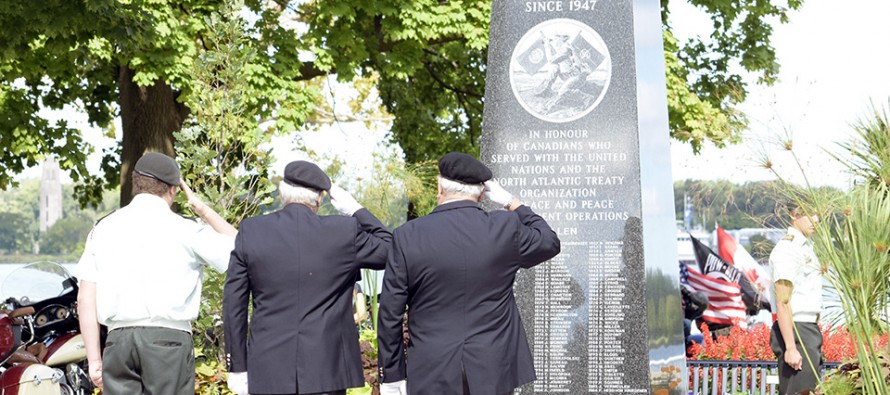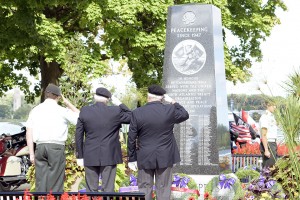Suicide numbers on the rise among Canadian veterans

Suicidal thoughts are a daily occurrence in a soldier’s mind that has post-traumatic stress disorder.
Each year, media outlets release the deaths of a soldiers who committed suicide. While citizens see what is on the news, the core problem is more complicated than described at the time of a soldier’s death.
In a report published by the Department of National Defense, there has been concerns expressed since the early 1990’s about the apparent suicide rate among Canadian Armed Forces members.
The report stated 93.3 per cent of the overall individuals had accessed a form of health care within the year prior to their death. Two-thirds of them accessed at least one type within 30 days prior to their death.
Princess Patricia’s Canadian Light Infantry Corporal Scott Fleming said group lectures with soldiers fresh off of tour that are sent to a therapist accomplish nothing.
“Individuals must be approached by mental health professionals rather than be relied upon to seek help themselves,” said Cpl Fleming. “I know that after my transfer in the reserve/civil roll, I quickly became disgusted with the civilian population and hated the fact that I lost brothers who served such an ungrateful population.”
According to the 2015 report from the Department of the National Defense, more than half of suicides were product of hanging. While 26.7 per cent were committed with a firearm. 13.3 per cent were caused by asphyxiation and 6.7 per cent were accounted for by drugs.
However, according to The Globe and Mail investigation conducted in 2015, more than one-third of soldiers who died in Afghanistan have died by suicide in Canada. According the report, the total estimation for suicide deaths is 59 people compared to the 158 that died in combat.
Master Corporal Brian Eagle has never been on tour but said he has experience being a confidante to guys who have gone and come back from war.
“The high rate of suicides is very distressing,” said MCpl Eagle. “Certainly there should be more studies regarding this.”
Walter Callaghan was a second lieutenant, health care administrator with the Canadian Armed Forces during the war.
“I’ve lost way too many friends to suicide,” said Callaghan. “My PTSD is because of a sense of guilt that I was not able to protect the soldiers that were under my command.”
He has had difficulty in the past fighting his own demons.
“I’ve had to step back from doing peer-support on a number of occasions because the emotional toll has become too much.”
The overall numbers are not an official record of the current problem in Canada, since the National Defense will not allow the full release of the current statistics.
Veteran suicides will claim more lives than combat did within three years-time at the current documented rate of veteran suicides in Canada.



